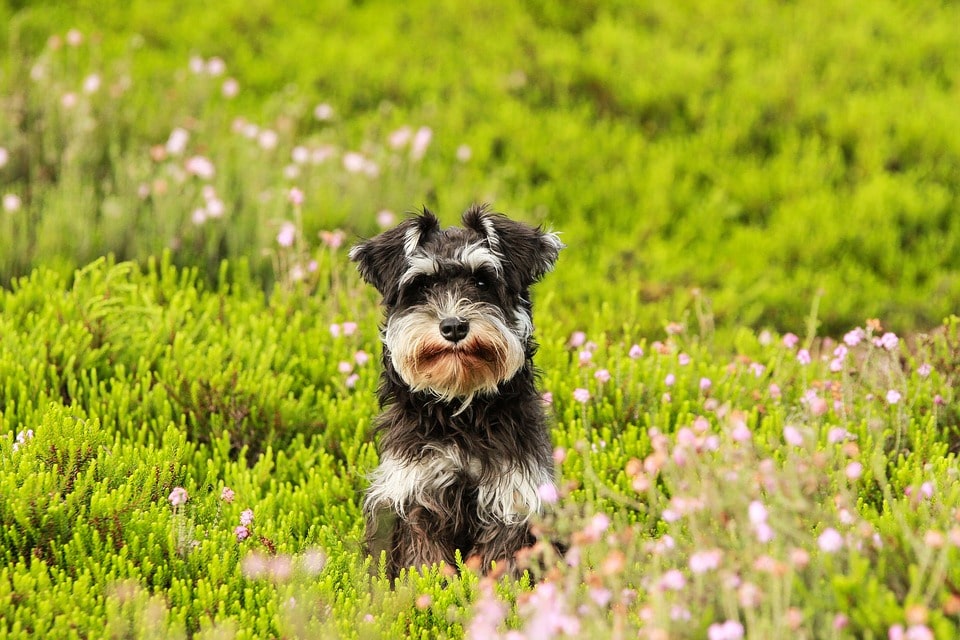Dog Breeds That Don’t Smell
 February 22, 2022
February 22, 2022
Looking for a dog breed that doesn’t typically smell? Pets Training & Boarding research the top non-smelling dog breeds to find you the perfect pet match.
The fact is – most dogs will smell at some stage of their lives. However, there are particular dog breeds that have a more pungent odour than others. Sometimes this can be due to the folds on their skin, the oils in their coats, or their big floppy ears.
Why Do Dogs Smell?
Firstly; it’s important to understand why dogs smell. Dogs smell to attract mates and repel predators. It also helps them show their unique identity and to identify each other. They are able to recognize and focus on body odour, which is why they can quickly sniff out a stranger in the park. Having an acute sense of smell means that dogs are more sensitive to a wider range of smells, which means they have a better chance of detecting food or someone else’s scent that might be coming from far away.
Some dogs were specifically bred to be super weather and water resistant. For these dogs it’s only natural that they contain a much larger sebaceous gland.
This clever gland produces an oily/waxy secretion known as sebum. This oil gives your pet their shine and silk, it also forms an incredible barrier to protect the skin and keep it waterproof. So, it’s no wonder that these common breeds are known to smell a little more than others including:
Most Smelly Dog Breeds
- Labradors
- Basset Hounds
- Bulldogs
- Cocker spaniels
- St Bernard
- Blood Hound
- Mastiff
However, all is not lost! It just means you may need to bathe your pet more often than not and ensure you use a good quality dog shampoo and really give your pet a good scrub. Some of these breeds also have ample skin folds and large floppy ears. If you notice a sickly-sweet smell on your pet it could be a sign of a yeast infection and seeking veterinary treatment is recommended. Most owners of these dogs are masters at ensuring their pups smell super on a weekly basis.
The other reason dogs smell is that they simply adore rolling in stinky smelly foul messes from down the park. That can include other animal poop, or rotten food (YUCK)! Some even delight in participating in this pungent exercise right after a bath… “well mum this stinky possum poop smells much better than lavender!”
Then there is the important question of allergies and ear infections. If your dog is suffering from skin allergies, they will omit a strange odour. This could be a sign of food or contact allergens and it’s important to seek veterinary advice. This can occur in all breeds, regardless of the size of the sebaceous gland. Allergies do not tend to get better on their own and will need assistance, this is particularly true if the allergy has promoted a yeast outbreak on the skin or inside the ears. It can be terribly uncomfortable for your pet.
Least Smelly Dog Breeds
The top dog breeds, that are the least smelly dog breeds, typically contain a much smaller sebaceous gland. These best smelling dog breeds include:
- Bichon Frise
- Basenji
- Dachshund
- Dobermann
- Havanese
- Maltese
- Labradoodle
- Poodle
- Schnauzer
- Shih Tzu
- West Highland White Terrier
- Whippet
But bear in mind, these wonderful smell-free breeds are also cunning canines who might love to indulge in a good roll down the park in something super foul. They can also be susceptible to allergies, like all dogs.
That Wet Dog Smell
Did you know why a wet dog smells like…well…a wet dog? It’s actually because during bathing it’s almost impossible to remove all of the oil from your dog’s coat leaving a ‘wet dog’ smell. However, most dogs dry to smell snuggly and clean.
Also, there is no denying that the wet dog smell inside of houses can become overpowering, especially if your pet’s favourite spot is the kitchen floor or a certain room in your house.
The reason for this is actually quite simple: there are a lot of molecules floating around in the air that make up and belong to your pet. They’re unlikely to be sprayed on by something you’ve washed with and these molecules collect on surfaces like floors or tables. This mix of pet-sized molecules can find its way into another room where they’ll start a cascade reaction with other airborne species such as pollen, dust particles, bacteria and viruses that have been missed by regular cleaning methods.
Dog Shampoo vs Human Shampoo
It’s really important that you only wash your dog in specially designed dog shampoo. Human shampoo does not contain the same PH balance and you could be stripping your dog’s coat leaving them dry, irritated and itchy as a result of being stripped of natural oils or coated with chemicals that can cause irritation.
Be careful to also not over-bathe your pet. Some dogs suffering from allergies may need to be bathed more often with specially medicated shampoos, however the average dog should not be bathed unless needed (cue the smelly roll). Over-bathing your dog can lead to dry and irritated skin, with a dull lifeless coat.
